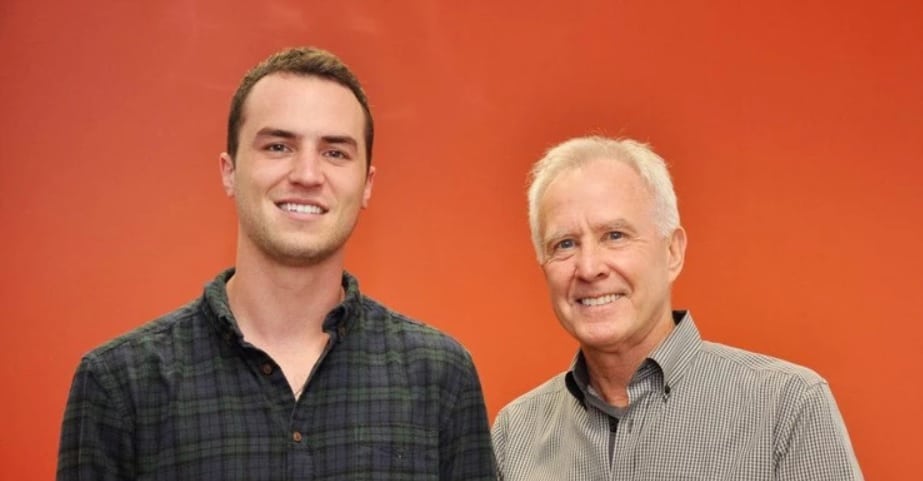OneClick.chat, a startup aiming to connect older adults via its web-based video chat platform, just received another round of fundraising from the National Institutes of Health to continue its research into the effect social connection can have on overall health of older adults, including those with mild cognitive impairment.
This round of the Small Business Innovation Research grant, in partnership with researchers from the University of Illinois Urbana-Champaign, is worth $1.8 million and will go toward phase two of the company’s research. Phase one was supported by a $150,000 grant given to the company in 2018.
Cofounders Dillon Myers and Alan Gibson met a few years ago at an alumni event for Washington and Lee University, and bonded over the idea that people of different generations don’t often connect with each other. The pair started hosting virtual potluck dinners with folks from a diversity of age groups, and realized there was a gap in the market for an easy-to-use video platform for older adults.
In 2016, the cofounders initially launched the platform under the name Potluck, but changed to OneClick.chat shortly after, and have since created a network of groups for older adults based on interests, encouraging socialization and potential new friendships. The video communications platform is aimed at events, where presenters can speak to a distributed audience that can later be split into discussion groups based on hobbies, or commonalities, like veterans’ groups.
To use other video platforms like Zoom or Google Meet, a user must have an account and navigate a handful of sign-on processes. But OneClick.chat users just need a link to join a room, account or not. While the service was created with older adults in mind and caters to that population, it can be used by colleagues or friends in other settings.
This second round of funding from the NIH comes at a time where everyone, but especially older adults, are facing isolation from others due to the pandemic.
“We knew that loneliness and social isolation were a problem before, but it’s a public health crisis now,” Myers told Technical.ly. “Nobody yet knows the long-term effects, but there’s been research that shows isolation can be as bad for your health as smoking 15 cigarettes a day.”
As areas of the country open up, senior living and retirement communities will still face pretty strict restrictions on visitors — likely until a vaccine is created and widely available. So being able to expand the platform and continue studying the positive effects it could have on mental and physical health is especially pertinent right now, said the CEO and former Venture for America fellow.
The grant will allow the company to make design improvements to the platform and host a large, randomized control trial with 120 adults to study the long-term health impact measures. OneClick.chat is also working with more senior living organizations to create and run a scalability pilot for the platform.
Phase two of the research will continue in partnership with Wendy Rogers, director of the University of Illinois Urbana-Champaign’s Human Factors and Aging Lab, and Raksha Mudar, director of the Aging and Neurocognition Lab.
“Dr. Mudar and I have been interested in social engagement for older adults for quite a long time already,” Rogers said in a statement. “This technology is designed with their needs and capabilities in mind. We are excited to continue research and bring this beneficial technology to more older adults as soon as possible.”
Currently, the OneClick.chat team has six employees who work out of 1776’s Center City coworking space in non-pandemic times.
Join the conversation!
Find news, events, jobs and people who share your interests on Technical.ly's open community Slack

Philly daily roundup: Women's health startup wins pitch; $204M for internet access; 'GamingWalls' for sports venues

Philly daily roundup: East Market coworking; Temple's $2.5M engineering donation; WITS spring summit

Philly daily roundup: Jason Bannon leaves Ben Franklin; $26M for narcolepsy treatment; Philly Tech Calendar turns one


